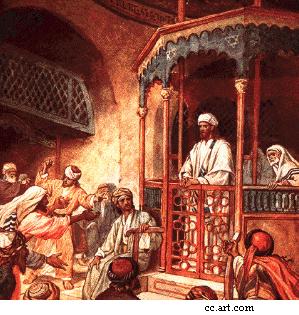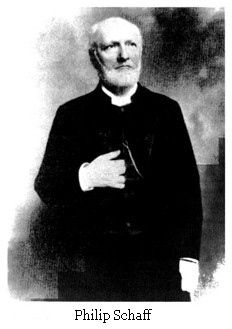Ember Days
Wednesday, Friday and Saturday at the Four Seasons
O ALMIGHTY God, who hast committed to the hands of men the ministry of reconciliation; We humbly beseech thee, by the inspiration of thy Holy Spirit, to put it into the hearts of many to offer themselves for this ministry; that thereby mankind may be drawn to thy blessed kingdom; through Jesus Christ our Lord. Amen.
Isaiah lxi. 1, Acts xiii. 44 & St. Luke iv. 16
Isaiah lxi. 1
The Spirit of the Lord GOD is upon me; because the LORD hath
anointed me to preach good tidings unto the meek; he hath sent me to
bind up the brokenhearted, to proclaim liberty to the captives, and
the opening of the prison to them that are bound; To proclaim the
acceptable year of the LORD, and the day of vengeance of our God; to
comfort all that mourn; To appoint unto them that mourn in Zion,
to give unto them beauty for ashes, the oil of joy for mourning, the
garment of praise for the spirit of heaviness; that they might be
called trees of righteousness, the planting of the LORD, that he might
be glorified.
Acts xiii. 44.
THE next sabbath day came almost the whole city together to hear the word of God. But when the Jews saw the
multitudes, they were filled with envy, and spake against those things which were spoken by Paul, contradicting and
blaspheming. Then Paul and Barnabas waxed bold, and said, It was necessary that the word of God should first have
been spoken to you: but seeing ye put it from you, and judge yourselves unworthy of everlasting life, lo, we turn
to the Gentiles. For so hath the Lord commanded us, saying, I have set thee to be a light of the Gentiles, that
thou shouldest be for salvation unto the ends of the earth. And when the Gentiles heard this, they were glad, and
glorified the word of the Lord: and as many as were ordained to eternal life believed. And the word of the Lord was
published throughout all the region.
St. Luke iv. 16
JESUS came to Nazareth, where he had been brought up: and, as his custom was, he went into the synagogue on the
sabbath day, and stood up for to read. And there was delivered unto him the book of the prophet Esaias. And when he
had opened the book, he found the place where it was written, The Spirit of the Lord is upon me, because he hath
anointed me to preach the gospel to the poor; he hath sent me to heal the brokenhearted, to preach deliverance to
the captives, and recovering of sight to the blind, to set at liberty them that are bruised, to preach the
acceptable year of the Lord. And he closed the book, and he gave it again to the minister, and sat down. And the
eyes of all them that were in the synagogue were fastened on him. And he began to say unto them, This day is this
scripture fulfilled in your ears.
Scripture from 1928 Book of Common Prayer and KJV, Prayers adapted from the BCP
Daily Readings for the Four Seasons
Collects, Litany & Hymns
History & Meaning
Homilies

- The Ember days are four groups of three days, Wednesday,
Friday, and Saturday set aside for fasting or abstinence and special devotion. They occur after the First Sunday in
Lent, Pentecost, Holy Cross Day (September 14), and St. Lucy's Day (December 13) and correspond to the natural
seasons of the year. The word Ember is English and is related to the Latin for the four seasons "Quatuor Temporum".
Autumn brings the Autumn Embertide; winter the Advent Embertide; spring, the Lenten Embertide; and summer, the Whit
or Pentecost Embertide (named after Whitsunday, the Feast of Pentecost). The Embertides are periods of prayer and
fasting. They have a proper collect, epistle, and gospel appointed (the same for all seasons) and specific daily
readings for morning and evening. Zechariah 8:19 called for four fasts a year "fast of the fourth month, and a
fast of the fifth, and a fast of the seventh, and a fast of tenth" In the days of Jesus, Jews fasted on Tuesday and
Thursday as Friday was the day of preparation for the Sabbath. The Early Church changed this custom and fasted
Wednesday because it was the day Jesus was betrayed, and Friday because it was the day he was crucified. In the
West, Christians added Saturday to the fasting days in the four seasons. In 494, Gelasius I of Rome, set Ember
Saturdays for ordinations at the end of the fast (see Acts 13:3)
More Chruch Fathers and Preachers
II
Chrysostom's Youth and Training | III Chrysostoms Conversion | IV Chrysostom Evades Bishopric | Chrysostom as an Homilist
Eusebius | Athanasius | Cyril | Tertullian | Justin | Ambrose | Irenaeus |
Origen | Clement | Polycarp | Augustine
Chapter XIV Chrysostom as a Preacher
by
The Reverend Professor Philip Schaff, DD, LL.D.

A Select Library Of The Nicene And Post-Nicene Fathers Of The Christian Church. Edited By Philip Schaff, D.D., Ll.D., Professor Of Church History In The Union Theological Seminary, New York. Volume Ix Saint Chrysostom: On The Priesthood; Ascetic Treatises; Select Homilies And Letters; Homilies On The Statues
The crowning merit of Chrysostom is his excellency as a preacher. He is generally and justly regarded as the
greatest pulpit orator of the Greek church. Nor has he any superior or equal among the Latin Fathers. He remains to
this day a model for preachers in large cities. He was trained in the school of Demosthenes and Libanius, and owed
much of his literary culture to the classics. He praises "the polish of Isocrates, the gravity of Demosthenes, the
dignity of Thucydides, and the sublimity of Plato." He assigns to Plato the first rank among the philosophers, but
he places St. Paul far above him, and glories in the victory of the tent-maker and fishermen over the wisdom of the
Greeks.
He was not free from the defects of the degenerate rhetoric of his age, especially a flowery exuberance of style
and fulsome extravagance in eulogy of dead martyrs and living men. But the defects are overborne by the virtues:
the fulness of Scripture knowledge, the intense earnestness, the fruitfulness of illustration and application, the
variation of topics, the command of language, the elegance and rhythmic flow of his Greek style, the dramatic
vivacity, the quickness and ingenuity of his turns, and the magnetism of sympathy with his hearers. He knew how to
draw in the easiest manner spiritual nourishment and lessons of practical wisdom from the Word of God, and to make
it a divine voice of warning and comfort to every hearer. He was a faithful preacher of truth and righteousness and
fearlessly told the whole duty of man. If he was too severe at times, he erred on virtue's side. He preached morals
rather than dogmas, Christianity rather than theology, active, practical Christianity that proves itself in holy
living and dying. He was a martyr of the pulpit, for it was chiefly his faithful preaching that caused his exile.
The effect of his oratory was enhanced by the magnetism of his personality, and is weakened to the reader of a
translation or even the Greek original. The living voice and glowing manner are far more powerful than the written
and printed letter.
Chrysostom attracted large audiences, and among them many who would rather have gone to the theatre than hear any
ordinary preacher. He held them spell-bound to the close. Sometimes they manifested their admiration by noisy
applause, and when he rebuked them for it, they would applaud his rebuke. "You praise," he would tell them, "what I
have said, and receive my exhortation with tumults of applause; but show your approbation by obedience; that is the
only praise I seek."
The great mediŠval poet assigns to Chrysostom a place in Paradise between Nathan the prophet and Anselm the
theologian, probably because, like Nathan, he rebuked the sins of the court, and, like Anselm, he suffered exile
for his conviction. The best French pulpit orators-Bossuet, Massilon, Bourdaloue-have taken him for their model,
even in his faults, the flattery of living persons. Villemain praises him as the greatest orator who combined all
the attributes of eloquence. Hase calls his eloquence "Asiatic, flowery, full of spirit and of the Holy Spirit,
based on sound exegesis, and with steady application to life." English writers compare him to Jeremy Taylor.
Gibbon (who confesses, however, to have read very few of his Homilies) attributes to him "the happy art of engaging
the passions in the service of virtue, and of exposing the folly as well as the turpitude of vice, almost with the
truth and spirit of a dramatic representation." Dean Milman describes him as an "unrivalled master in that rapid
and forcible application of incidental occurrences which gives such life and reality to eloquence. He is at times,
in the highest sense, dramatic in manner." Stephens thus characterizes his sermons:
"A power of exposition which unfolded in lucid order, passage by passage, the meaning of the book in hand; a rapid
transition from clear exposition, or keen logical argument, to fervid exhortation, or pathetic appeal, or indignant
denunciation; the versatile ease with which he could lay hold of any little incident of the moment, such as the
lighting of the lamps in the church, and use it to illustrate his discourse; the mixture of plain common sense,
simple boldness, and tender affection, with which he would strike home to the hearts and consciences of his
hearers-all these are not only general characteristics of the man, but are usually to be found manifested more or
less in the compass of each discourse. It is this rare union of powers which constitutes his superiority to almost
all other Christian preachers with whom he might be, or has been, compared. Savonarola had all, and more than all,
his fire and vehemence, but untempered by his sober, calm good sense, and wanting his rational method of
interpretation. Chrysostom was eager and impetuous at times in speech as well as in action, but never fanatical.
Jeremy Taylor combines, like Chrysostom, real earnestness of purpose with rhetorical forms of expression and florid
imagery; but, on the whole, his style is far more artificial, and is overlaid with a multifarious learning, from
which Chrysostom's was entirely free. Wesley is almost his match in simple, straightforward, practical exhortation,
but does not rise into flights of eloquence like his. The great French preachers, again, resemble him in his more
ornate and declamatory vein, but they lack that simpler common-sense style of address which equally distinguished
him."
End of Chapter
Visit www.CCEL.org for other chapters and Chrysostom's Treatise on the Priesthood

Advent Ember Days Readings
Lenten Ember Days Readings
Pentecost Ember Days Readings
Autumn Ember Days Readings
HOME